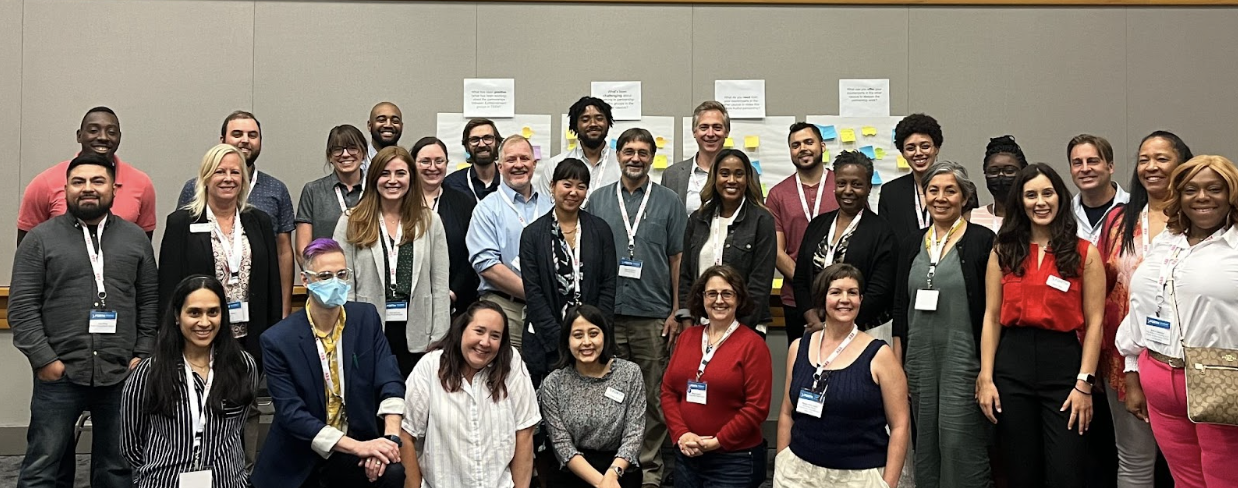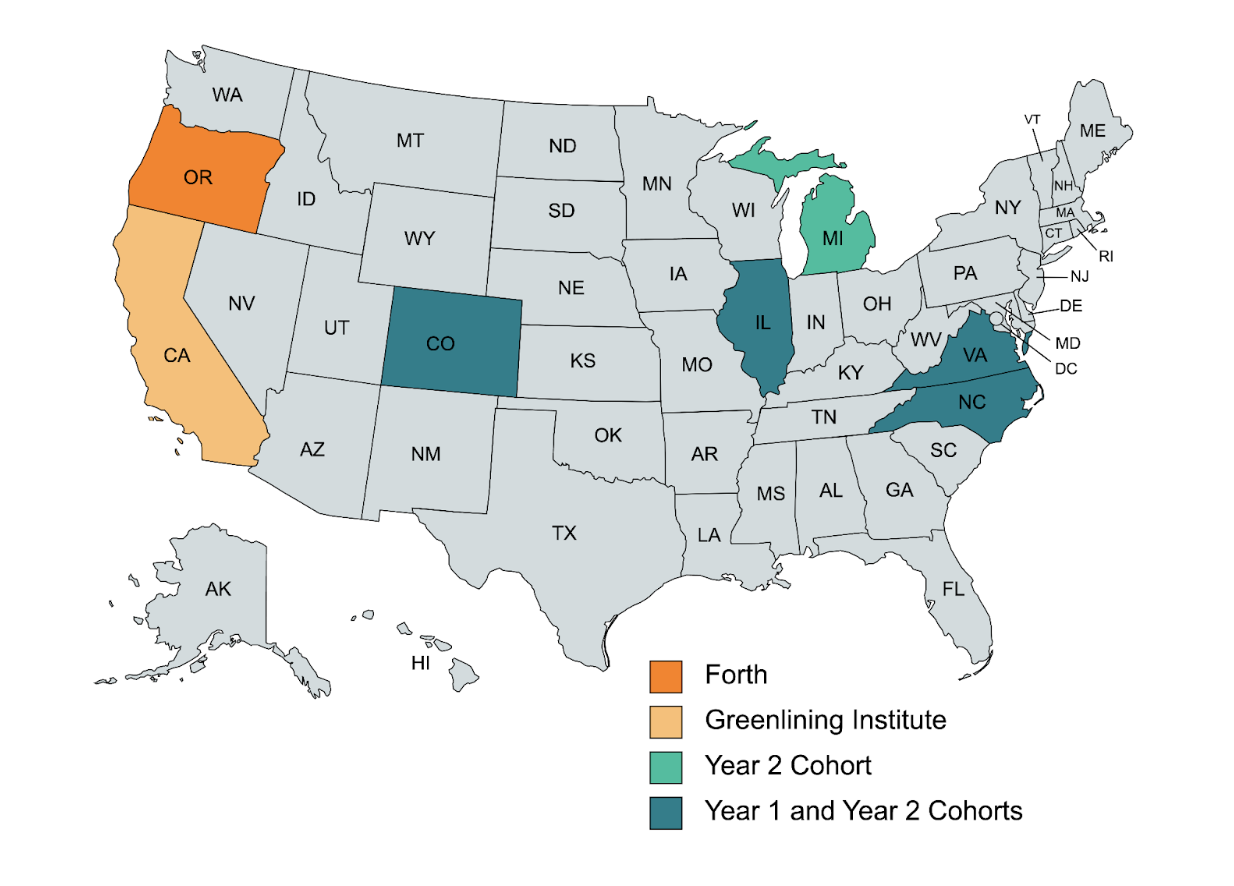The Transformative Power of Partnership
By: Isa Gaillard at The Greenlining Institute & Alexa Diaz at Forth

After a decade of advancing racial equity in transportation electrification, the Greenlining Institute was awarded the Community Partner Award at Forth’s Roadmap Conference in June.
“The Greenlining Institute has been a national leader in bringing the benefits of electric mobility to communities of color,” said Jeff Allen, Forth’s Executive Director. “Greenlining was visionary in seeing how this new technology could benefit communities, and understanding the need for smart, well-organized advocacy to make sure that would happen.”
One of Greenlining’s first campaigns advocating for equity in electric vehicles was Charge Ahead California, a coalition of environmental justice, equity, and environmental groups that partnered up in 2013 with the goal of putting 1 million light, medium, and heavy-duty electric vehicles on California’s roads by 2023. In February of this year, we not only accomplished this goal early, but have already surpassed it. Now, the coalition continues this important work today, fighting to ensure the state’s EV policies and programs center equity.
Community guides every stage of our work, which is why Greenlining and Forth partnered in 2020 to respond to the need for equitable transportation electrification that centers community priorities. In 2020, Greenlining and Forth established the Towards Equitable Electric Mobility (TEEM) Community of Practice which builds bridges between environmental justice organizations and traditional environmental organizations to advance equitable electric mobility. Over the past two years, we've learned that maintaining successful partnerships between different types of organizations demands strong communication and commitment to collaboration. It’s not particularly easy or quick work, but ultimately, these partnerships yield collective action that achieves greater impact.
In our five state cohorts we have environmental justice organizations and traditional environmental organizations working together on shared priorities that will advance equitable electric mobility in their respective states. We’ve found that this requires a lot of time, intentional conversations, and foundation setting that allows everyone to speak the same language. To establish a baseline, we worked with TEEM members to develop shared principles, commitments, and community agreements that guide our collective efforts and inform how we work with disadvantaged communities across our states.

So far we have held four community listening sessions that have shed light on some of the challenges residents in Denver and Chicago are facing such as poor air quality and displacement caused by transportation development that leads to gentrification. We plan to do more of these listening sessions to deepen our understanding of local challenges and partner with community groups and residents to develop shared visions, campaigns, and projects that will result in lasting, tangible benefits on the ground. We’re not just focused on passing a piece of legislation, or advancing one budget priority. Our practice of partnering with local groups and building their capacity to lead helps ensure ongoing success well after we secure these critical campaign advocacy wins.
Taking collective action can be difficult, especially when it requires forming partnerships with groups from different backgrounds that may have different priorities. However, it is a practice that, when done well, can meaningfully center equity into the complex systems of environmental and social justice programs and policies.
This blog has reposted from the original article from The Greenlining Institute published on July 11, 2022

